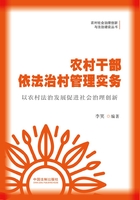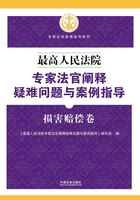Ath. I think that I am not wholly in want of a pattern, for when Iconsider the words which we have spoken from early dawn until now, andwhich, as I believe, have been inspired by Heaven, they appear to meto be quite like a poem. When I reflected upon all these words ofours. I naturally felt pleasure, for of all the discourses which Ihave ever learnt or heard, either in poetry or prose, this seemed tome to be the justest, and most suitable for young men to hear; Icannot imagine any better pattern than this which the guardian ofthe law who is also the director of education can have. He cannot dobetter than advise the teachers to teach the young these words and anywhich are of a like nature, if he should happen to find them, eitherin poetry or prose, or if he come across unwritten discourses akinto ours, he should certainly preserve them, and commit them towriting. And, first of all, he shall constrain the teachers themselvesto learn and approve them, and any of them who will not, shall notbe employed by him, but those whom he finds agreeing in hisjudgment, he shall make use of and shall commit to them theinstruction and education of youth. And here and on this wise let myfanciful tale about letters and teachers of letters come to an end.
Cle. I do not think, Stranger, that we have wandered out of theproposed limits of the argument; but whether we are right or not inour whole conception, I cannot be very certain.
Ath. The truth, Cleinias, may be expected to become clearer when, aswe have often said, we arrive at the end of the whole discussion aboutlaws.
Cle. Yes.
Ath. And now that we have done with the teacher of letters, theteacher of the lyre has to receive orders from us.
Cle. Certainly.
Ath. I think that we have only to recollect our previousdiscussions, and we shall be able to give suitable regulationstouching all this part of instruction and education to the teachers ofthe lyre.
Cle. To what do you refer?
Ath. We were saying, if I remember rightly, that thesixty-year-old choristers of Dionysus were to be specially quick intheir perceptions of rhythm and musical composition, that they mightbe able to distinguish good and bad imitation, that is to say, theimitation of the good or bad soul when under the influence of passion,rejecting the one and displaying the other in hymns and songs,charming the souls of youth, and inviting them to follow and attainvirtue by the way of imitation.
Cle. Very true.
Ath. And with this view, the teacher and the learner ought to usethe sounds of the lyre, because its notes are pure, the player whoteaches and his pupil rendering note for note in unison; butcomplexity, and variation of notes, when the strings give one soundand the poet or composer of the melody gives another-also when theymake concords and harmonies in which lesser and greater intervals,slow and quick, or high and low notes, are combined-or, again, whenthey make complex variations of rhythms, which they adapt to the notesof the lyre-all that sort of thing is not suited to those who haveto acquire a speedy and useful knowledge of music in three years;for opposite principles are confusing, and create a difficulty inlearning, and our young men should learn quickly, and their merenecessary acquirements are not few or trifling, as will be shown indue course. Let the director of education attend to the principlesconcerning music which we are laying down. As to the songs and wordsthemselves which the masters of choruses are to teach and thecharacter of them, they have been already described by us, and are thesame which, when consecrated and adapted to the different festivals,we said were to benefit cities by affording them an innocentamusement.
Cle. That, again, is true.
Ath. Then let him who has been elected a director of music receivethese rules from us as containing the very truth; and may he prosperin his office! Let us now proceed to lay down other rules inaddition to the preceding about dancing and gymnastic exercise ingeneral. Having said what remained to be said about the teaching ofmusic, let us speak in like manner about gymnastic. For boys and girlsought to learn to dance and practise gymnastic exercises-ought theynot?
Cle. Yes.
Ath. Then the boys ought to have dancing masters, and the girlsdancing mistresses to exercise them.
Cle. Very good.
Ath. Then once more let us summon him who has the chief concern inthe business, the superintendent of youth [i.e., the director ofeducation]; he will have plenty to do, if he is to have the chargeof music and gymnastic.
Cle. But how will old man be able to attend to such great charges?















